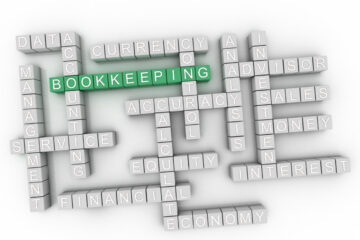 Late fees. Unexpected tax bills. Surprises in your cash flow.
Late fees. Unexpected tax bills. Surprises in your cash flow.
If you’re a business owner earning over $400,000 a year and still experiencing these issues, chances are your books are messier than you think — and they’re silently draining your profits.
Clean books aren’t just about staying organized. They’re about making smart decisions, protecting your margins, and avoiding costly mistakes that can snowball into major financial stress.
Let’s unpack what messy books really look like, how they impact your bottom line, and what you can do today to fix them.
What “Messy Books” Look Like
When you’re running a business with serious revenue, your books should do more than just exist for tax season. They should function as a financial dashboard — guiding decisions, showing warning signs, and reflecting real performance.
But too often, this is reality:
-
Bank accounts not reconciled monthly — leaving unknown discrepancies lurking
-
Outdated or duplicated transactions — distorting your financial reality
-
Uncategorized or vague expenses — missing the chance to optimize deductions
-
Inconsistent income tracking — underreporting or overreporting revenue
-
No separation between business and personal expenses — a major red flag for the IRS
The problem? These issues aren’t always obvious — especially when things seem “fine.” But once you grow past a certain profit threshold, sloppy bookkeeping becomes a profit killer, not just a nuisance.
The Hidden Costs of Messy Books
Think messy books are just a cosmetic problem? Think again. Here are three ways they directly reduce your profits — even if you’re unaware:
1. Missed Tax Deductions
When your expenses aren’t accurately categorized, you leave money on the table. Overstated income and missed deductions can lead to thousands in unnecessary tax payments every year.
2. Audit Exposure
Unorganized or inconsistent records attract IRS attention. If you’re ever audited and can’t produce clean, accurate books? You risk penalties, interest, and disallowed deductions — plus the stress and time drain.
3. Bad Business Decisions
If your reports are unreliable, how can you make smart decisions? You might:
-
Over hire because revenue looked higher than it was
-
Take on too much debt, thinking cash flow was stronger
-
Miss red flags like creeping overhead or shrinking margins
Sloppy books lead to costly missteps that high-performing businesses can’t afford.
Is Your Bookkeeping Costing You?
Ask Yourself These 5 Questions:
Here’s a quick diagnostic to assess the quality of your books:
-
Do I know exactly how much cash is available today — across all accounts — without guessing?
If not, you’re operating without a clear dashboard. -
Are my accounts reconciled monthly — and reviewed by someone qualified?
Reconciliation is the foundation of financial accuracy. -
Can I produce a clean Profit & Loss statement and Balance Sheet on demand — and actually trust the numbers?
If not, you likely have lurking errors. -
Are all expenses categorized properly, with no vague “Ask My Accountant” or uncategorized entries?
These catch-all categories are deduction-killers. -
Could I hand my books to a lender, buyer, or auditor today without scrambling?
If that thought makes you nervous, it’s a sign of deeper issues.
If you answered “No” to any of these, your books may be costing you more than you realize.
Your Next Step: Schedule a Bookkeeping Health Check Call
At Simple Finances, Inc., we specialize in helping high-performing business owners clean up their books, reduce tax liability, and take control of their finances.
In just one 30-minute Assessment Call, we’ll:
-
Pinpoint the weak spots in your current bookkeeping system
-
Show you where profit is slipping through the cracks
-
Provide a plan to get your financials back on track — fast
You’ve worked hard to grow your business. Don’t let messy books quietly eat into the success you’ve built.
